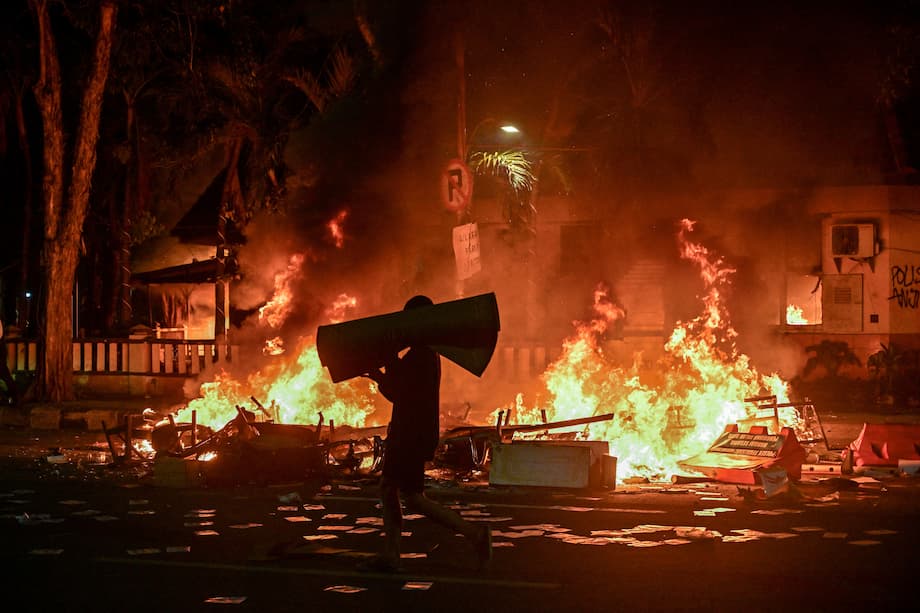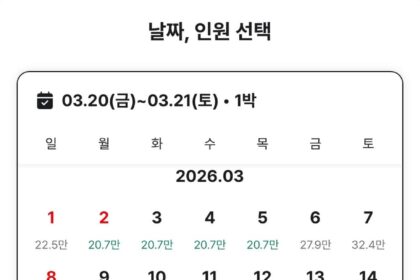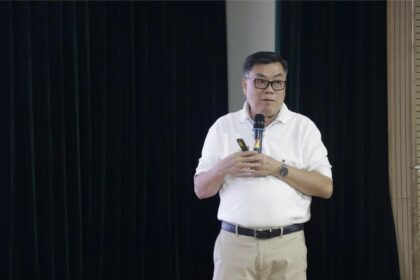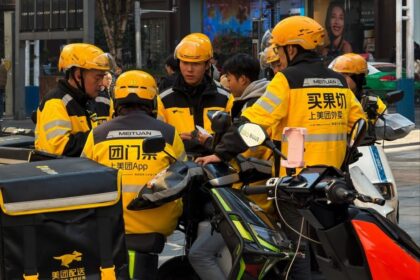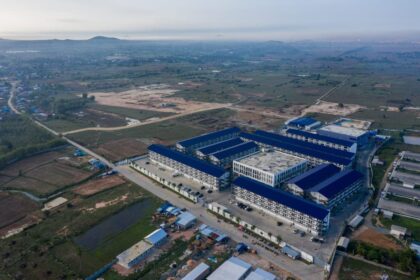Indonesia Cuts Lawmakers Benefits After Deadly Protests Rock Nation
President Prabowo Subianto announces sweeping cuts to parliamentary perks as violent unrest over economic inequality and government spending shakes Indonesia.
Indonesia’s President Prabowo Subianto announced on Sunday that political parties have agreed to cut lawmakers’ benefits, including generous housing allowances and overseas work trips, in an urgent attempt to calm anti-government protests that have left at least five people dead. The unrest, which began as peaceful demonstrations against parliamentary perks, quickly escalated into the country’s most violent political crisis in decades, with rioting, arson, and widespread anger over economic inequality and austerity measures.
- Indonesia Cuts Lawmakers Benefits After Deadly Protests Rock Nation
- What Sparked the Protests?
- From Peaceful Protest to Violent Unrest
- Economic Hardship and Austerity Fuel Discontent
- Social Media Mobilization and the “Dark Indonesia” Movement
- Government Response: Perk Cuts, Dialogue, and Security Crackdown
- Political and Economic Stakes: Sovereign Wealth Fund and Public Trust
- Student and Civil Society Demands
- International and Digital Repercussions
- What to Know
The protests erupted on Monday in Jakarta and rapidly spread to other major cities, fueled by public outrage over what many saw as excessive pay and privileges for members of parliament. Tensions boiled over on Friday after a motorcycle rideshare driver was killed during a police crackdown at a protest site, triggering riots, attacks on politicians’ homes, and the torching of government buildings. The violence has rattled investor confidence, causing a sharp selloff in Indonesia’s stock and currency markets.
What Sparked the Protests?
The immediate trigger for the unrest was a proposed increase in lawmakers’ housing allowances, with reports that parliamentarians were set to receive a new monthly stipend of 50 million rupiah (about $3,000)—nearly ten times the minimum wage in Jakarta. This news, coming amid widespread economic hardship and government budget cuts, struck a nerve with ordinary Indonesians struggling to make ends meet.
Student groups and activists quickly mobilized, organizing rallies under the banner of “Indonesia Gelap” (Dark Indonesia), a movement that gained traction on social media. Demonstrators, many dressed in black, carried posters criticizing the government and referencing President Prabowo’s pet cat as a symbol of elite privilege. The protests soon expanded to include broader grievances over austerity measures, cuts to education and social programs, and the growing sense of inequality between the political elite and the general public.
According to Herianto, a student leader in Jakarta, the movement is about more than just parliamentary perks. He explained,
“Indonesia is dark because many policies are unclear. The cuts are meant to cover the free meal program expenses, but they could impact education and anger students.”
From Peaceful Protest to Violent Unrest
While the demonstrations began peacefully, the situation deteriorated rapidly after the death of 21-year-old ride-hailing driver Affan Kurniawan, who was fatally struck by a police armored vehicle. The incident, which is now under police investigation, sparked nationwide outrage and led to rioting, looting, and arson attacks on the homes of political party members and state buildings.
In Makassar, South Sulawesi, a mob beat an online motorcycle taxi driver to death, accusing him of being an intelligence agent. Three others died in an arson attack on a local parliament building. The violence has left at least five people dead, with some reports suggesting the toll could be higher.
President Prabowo responded by ordering the military and police to take firm action against rioters and looters, warning that some of the unrest bore the signs of terrorism and treason. He also canceled a planned trip to China and convened an emergency meeting with key cabinet members and political party leaders at the Presidential Palace in Jakarta.
Security was visibly heightened, with military personnel deployed to guard the palace and key government installations. Many ministers and officials arrived using civilian license plates instead of their official ones, a precaution as tensions simmered across the country.
Despite the government’s announcement of benefit cuts, student groups and activists have vowed to continue their demonstrations. Muzammil Ihsan, head of the All Indonesian Students’ Executives Body, the country’s largest student umbrella group, told Reuters,
“Cutting lawmakers’ perks is not enough. The government must resolve deep-rooted problems. The anger on the streets is not without cause.”
Economic Hardship and Austerity Fuel Discontent
The protests are unfolding against a backdrop of sweeping austerity measures introduced by President Prabowo’s administration. Since taking office in October last year, Prabowo has ordered massive budget cuts totaling up to $44 billion—over 15 percent of the state budget—targeting administrative costs, official ceremonies, and business trips. The government claims these savings are necessary to fund populist programs, most notably a $4.3 billion free nutritious meals initiative for schoolchildren and pregnant mothers.
However, the cuts have also affected vital public services. Funding for primary and secondary education was reduced by $480 million, while the higher education ministry’s budget was slashed by 25 percent. These measures have sparked outrage among students and educators, who fear rising university fees, canceled scholarships, and worsening teacher welfare.
Many protesters argue that the free meals program, while well-intentioned, is being implemented at the expense of education and healthcare. In West Papua, high school students called for free education and improved school facilities instead of free meals, and condemned the use of soldiers in distributing food as an example of growing militarization in civilian life.
The government insists that the budget cuts will not harm education or teacher welfare, but widespread ministry cutbacks have raised concerns about the quality of public services. The protests have also highlighted broader economic anxieties, including the rising cost of living, high youth unemployment, and a lack of subsidized cooking gas.
Social Media Mobilization and the “Dark Indonesia” Movement
Social media has played a crucial role in mobilizing the protests. The hashtag #IndonesiaGelap has become a rallying cry for those frustrated with government policies and the perceived lack of prospects for young people. Another trend, #KaburAjaDulu (“Just Escape First”), reflects a growing sentiment among Indonesian youth to seek opportunities abroad amid economic uncertainty.
Thousands of students have taken to the streets in cities such as Jakarta, Surabaya, Yogyakarta, Medan, Banda Aceh, Makassar, and Samarinda. The largest demonstration, outside the Jakarta presidential palace on February 20, drew thousands of students demanding a reassessment of budget cuts and the free meal program, as well as an end to state corruption and the military’s dominant role in government.
Some protests have escalated into clashes with police, who have used tear gas and water cannons to disperse crowds. In Surabaya, authorities reportedly arrested five students during demonstrations in front of the local council office.
Government Response: Perk Cuts, Dialogue, and Security Crackdown
In response to the unrest, President Prabowo announced that parliament leaders would revoke a number of policies, including the size of allowances for members of parliament and a moratorium on overseas work trips. Starting Monday, certain perks will be scrapped, and the government has pledged to conduct a transparent investigation into police actions that led to the death of Affan Kurniawan.
Prabowo emphasized his administration’s respect for freedom of expression, as guaranteed by Indonesia’s constitution and international conventions, but warned that violent acts would not be tolerated. He called on the public to express their aspirations peacefully and constructively, assuring that their voices would be heard and acted upon.
At a press conference, Prabowo was flanked by leaders of various political parties, including Megawati Soekarnoputri, Zulkifli Hasan, Edhie Baskoro Yudhoyono, Herman Khaeron, and Ahmad Muzani, signaling a united front in addressing the crisis. He urged the House of Representatives to invite community figures, students, and various groups for open dialogue, and warned against provocations by groups seeking to divide the nation.
However, some activists and rights groups have criticized the government’s response as heavy-handed. Amnesty International’s Indonesia chapter issued a statement calling Prabowo’s use of terms such as treason and terrorism “excessive,” warning that such rhetoric could be used to justify repression of legitimate dissent.
Political and Economic Stakes: Sovereign Wealth Fund and Public Trust
The unrest comes at a critical time for President Prabowo, who won a landslide election victory last year and has enjoyed high approval ratings, with some polls putting his popularity near 80 percent. His administration has launched ambitious economic initiatives, including the creation of Danantara, a new sovereign wealth fund that centralizes control over Indonesia’s vast portfolio of state-owned enterprises, valued at around $900 billion.
Dividends from these enterprises will now flow directly into Danantara, bypassing the finance ministry and giving the president unprecedented discretion over the nation’s wealth. While the government argues that these reforms will boost efficiency and fund social programs, critics warn that concentrating so much power in the hands of one leader could undermine transparency and accountability.
Investor confidence has been shaken by the recent violence, with a steep selloff in Indonesian stocks and currency markets. Analysts caution that continued unrest could threaten the country’s economic stability and Prabowo’s political standing, especially if the middle class begins to feel the impact of austerity measures.
Student and Civil Society Demands
Student leaders and civil society groups have made it clear that cutting lawmakers’ perks is only a first step. Their demands include:
- A reassessment of budget cuts and the free meal program
- Protection of education, health, and social welfare funding
- An end to state corruption and the military’s dominant role in government
- Greater transparency and accountability in public spending
- Dialogue with community figures, students, and affected groups
Tegar Afriansyah, chairman of the Indonesian Student League for Democracy, argued that the root of the problem is political oligarchy and an unequal economic structure. He described Prabowo’s instructions to police and military as “clearly repressive and intimidating.”
Despite the government’s efforts to restore order, many protesters remain skeptical that meaningful change will occur without broader reforms to address inequality and ensure that public funds are used for the benefit of all Indonesians.
International and Digital Repercussions
The unrest has drawn international attention, with global rights groups and foreign media closely monitoring the situation. TikTok, owned by China’s ByteDance, temporarily suspended its live feature in Indonesia for several days, citing concerns over the spread of misinformation and the safety of users during the protests.
President Prabowo’s decision to cancel a high-profile trip to China underscores the seriousness of the crisis and its potential to affect Indonesia’s international relations and investment climate.
What to Know
- President Prabowo Subianto announced cuts to lawmakers’ benefits after deadly protests erupted over parliamentary perks and austerity measures.
- At least five people have died in the unrest, which has included rioting, arson, and attacks on politicians’ homes and government buildings.
- The protests began over excessive pay for parliamentarians but expanded to include anger over budget cuts to education and social programs.
- Student groups and activists say cutting perks is not enough and are demanding broader reforms to address inequality and government accountability.
- The government has pledged to investigate police actions and engage in dialogue, but has also ordered a security crackdown on rioters and looters.
- Investor confidence has been shaken, and the crisis poses the most significant challenge yet to Prabowo’s administration.
- Social media movements like #IndonesiaGelap have played a key role in mobilizing protests and expressing public frustration.


